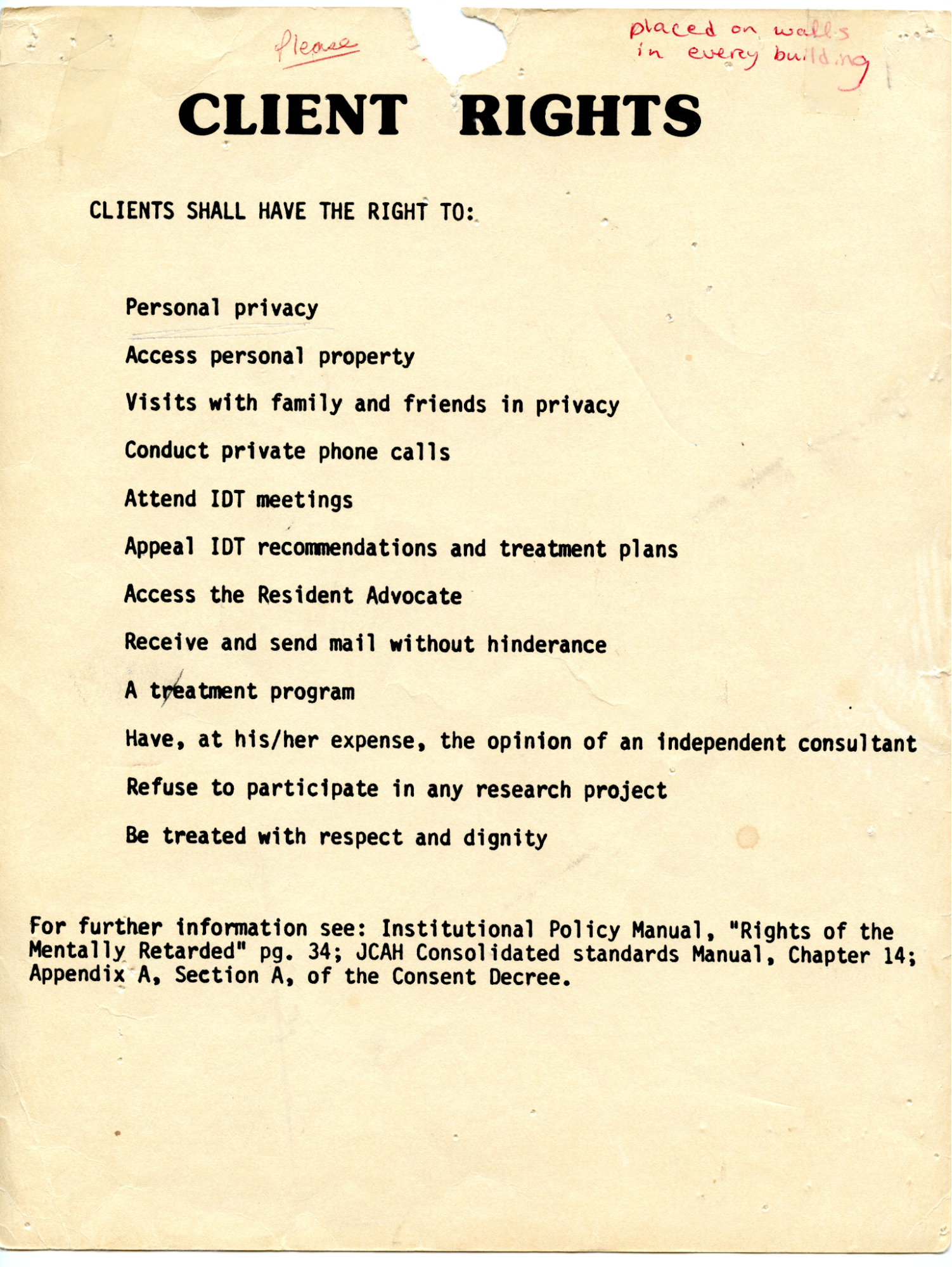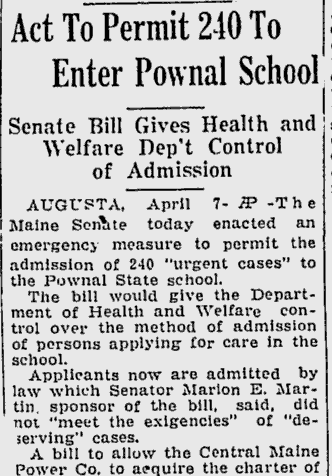The second decade of the 21st century ushered in big changes to state government. An economic downturn and a new administration ushered in alongside others in an austerity-based, small government movement led to budget cuts and staffing freezes at the Department of Human Services. Over this decade, waitlists for services exploded, especially for Section 21 services, which serve those who need daily support to live full lives.

The transition from institutional to community living and care was not easy for many Pineland residents, nor was it easy for those setting up and trying to operate housing and various services.

New ideas were cropping up - it was beginning to be understood that services provided in the community were both more humane and less expensive. But even as a new infirmary to “house 134 totally dependent patients” was dedicated, Governor Reed called for more, saying, “the needs of this and other state hospitals continue to grow".

While changes were being made to the administrative structures of Maine’s institutions, the Pownal State School was undergoing an expansion as well. An increase in beds and buildings was championed by a new superintendent, Dr. Stephen E. Vosburgh, who was hired in 1919 and served for 18 years.
Just six years after the institution opened, a headline announced "Care of Feeble-Minded Big Problem for Maine." The facility already had 255 people receiving care, with 160 on a waiting list.
Laws passed over this decade allowed judges to commit people to the School, placed power in a Board of Trustees, and criminalized any who tried to run away or those that helped "fugitives". The population of residents swelled during this time, fueled by calls to expand: "the state must plan to care for, altogether, at least 1500 persons of this class."
